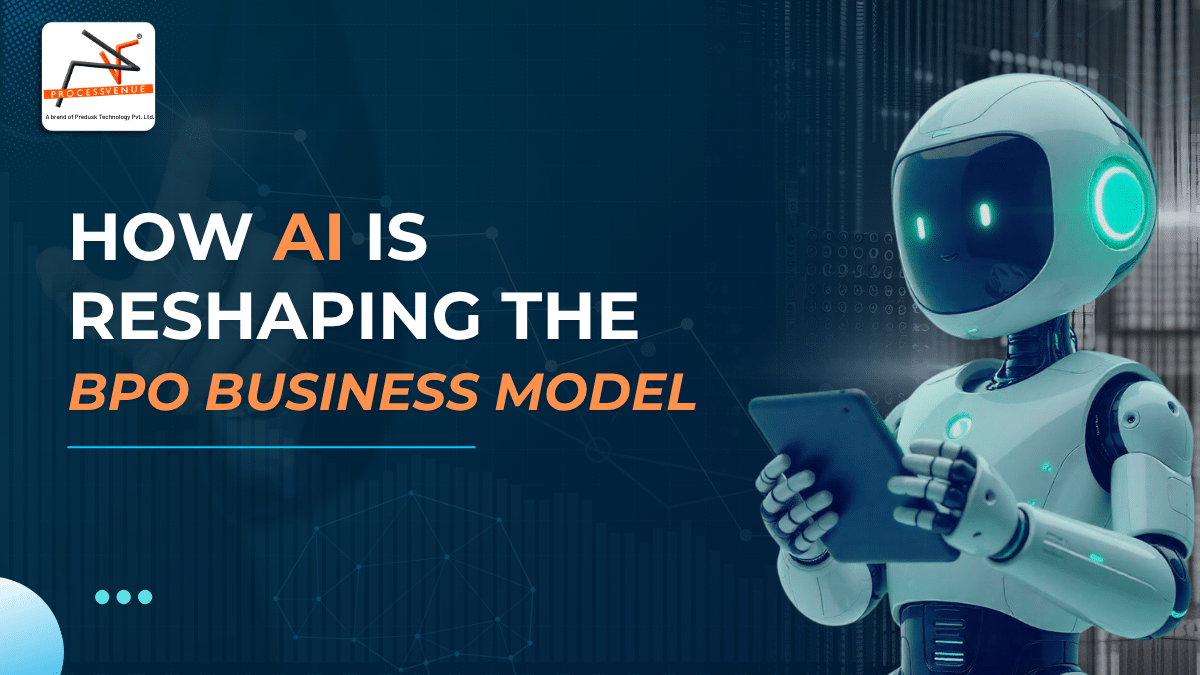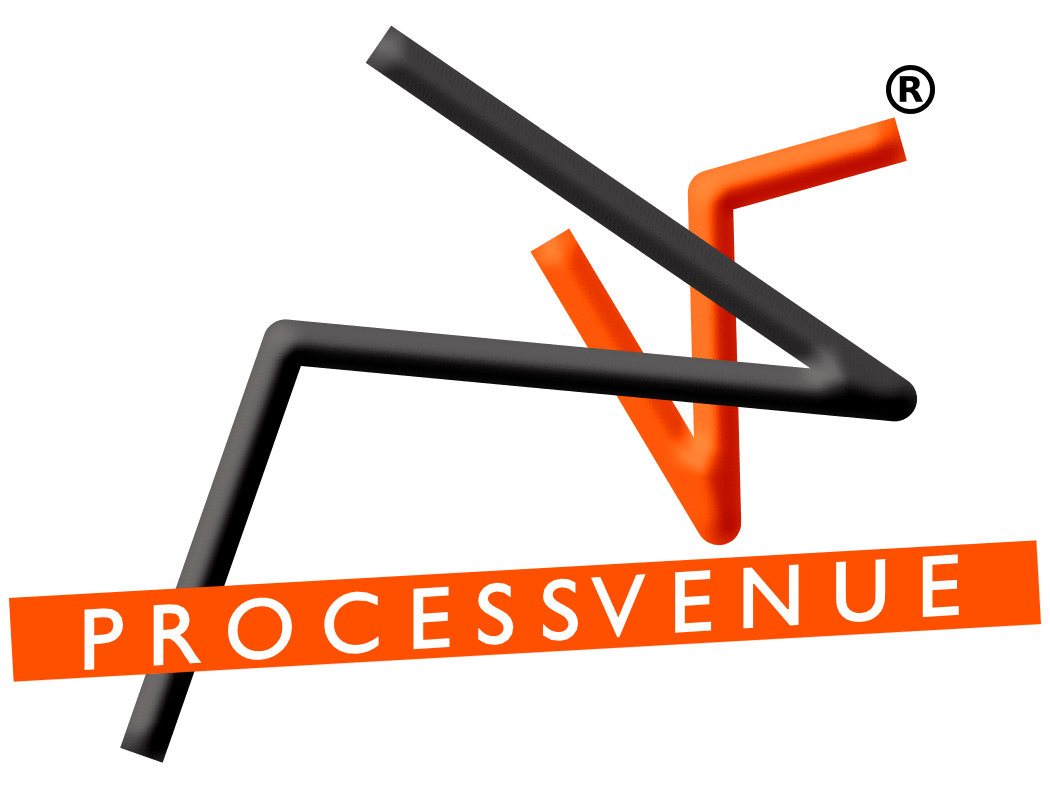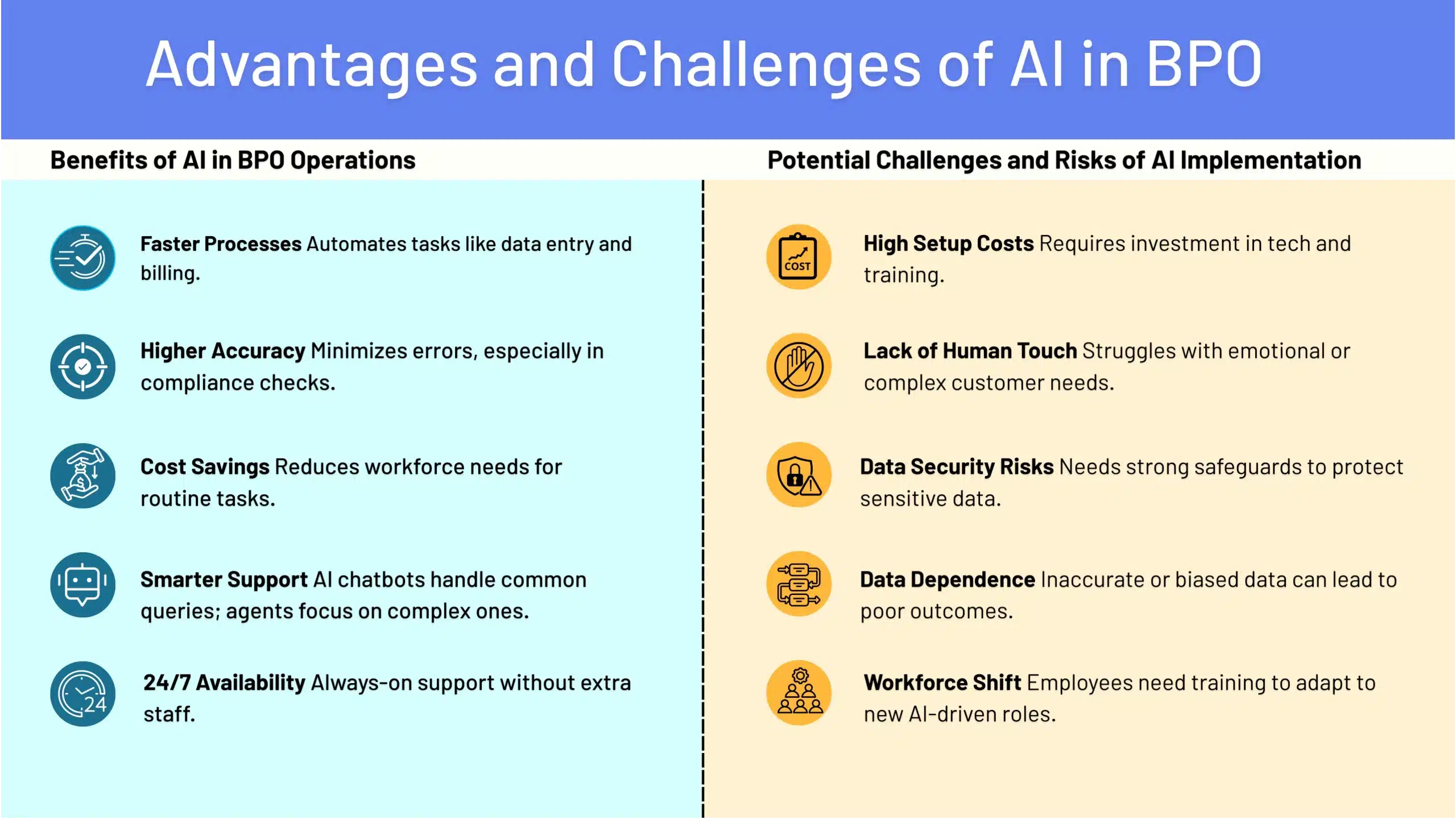
How AI is Reshaping the BPO Business Model
|
Getting your Trinity Audio player ready...
|
AI is changing the way BPO companies operate, making processes faster, more efficient, and less dependent on manual work. From AI-driven customer support to automated data processing, reducing costs while improving accuracy and service quality.
Companies that effectively adopt AI can handle higher workloads, provide 24/7 support, and offer personalized customer interactions without increasing operational expenses. Read on to learn more!
The Evolution of AI in the BPO Industry
Initially, AI in BPO was limited to basic chatbots and rule-based automation. Still, advancements in machine learning applications in BPO (AI that learns from data) have made it possible to provide more accurate and efficient services.
Over time, AI has integrated with big data and AI to improve predictive analytics, allowing businesses to anticipate customer needs and streamline operations. AI-powered business process automation now handles repetitive tasks like data entry, invoice processing, and compliance monitoring, reducing errors and increasing efficiency.
Key AI Applications in BPO
AI has become an essential of BPO business models, helping companies improve efficiency, reduce costs, and provide better customer service. From automating repetitive tasks to analyzing large volumes of data, AI supports businesses in making faster and more accurate decisions. Here are some key ways AI is used in BPO services:
AI-Powered Automation in BPO
AI helps automate repetitive tasks like data entry, billing, and compliance checks. AI business process automation reduces errors, speeds up operations, and allows employees to focus on the required human judgment. Companies also use AI to manage workflows, route queries to the right agents, and handle routine administrative work.
AI in Customer Service and Support
AI-powered chatbots and virtual assistants handle common queries, freeing up agents for complex issues. Machine learning (AI that improves over time by analyzing patterns) helps personalize interactions by predicting customer needs based on past behavior.
AI also supports multilingual customer service, allowing businesses to assist customers in different languages without needing large translation teams.
AI for Data Analytics and Decision-Making
AI processes large amounts of customer and operational data to identify patterns and trends. Big data and AI integration help businesses predict demand, identify potential risks, and improve service strategies.
AI business intelligence (technology that helps businesses analyze data for better decision-making) enables real-time monitoring of key performance indicators (KPIs) and customer feedback, helping companies respond quickly to issues.
Advantages and Challenges of AI in BPO
AI is reshaping BPO business models, helping companies work faster and more accurately. It automates routine tasks, supports customer service, and analyzes large amounts of data for better decision-making. While AI offers many benefits, businesses must address its challenges to maximize its potential.
Benefits of AI in BPO Operations
Some primary benefits of AI in BPO operations are:
- Faster Processes: AI-powered automation reduces manual work in data entry, billing, and customer support, allowing businesses to complete tasks quickly.
- Better Accuracy: AI reduces human errors in repetitive processes, improving the quality of work. For example, AI in compliance checks (ensuring rules and regulations are followed) helps prevent mistakes that could lead to penalties.
- Cost Savings: AI reduces the need for a large workforce for routine tasks, lowering operational costs while allowing employees to focus on complex work.
- Smarter Customer Support: AI-powered chatbots and virtual assistants handle common queries, freeing human agents for complex issues. AI can also analyze customer behavior and suggest personalized responses.
- 24/7 Availability: AI systems work around the clock, providing uninterrupted support without additional staffing.
Potential Challenges and Risks of AI Implementation
In contrast, some cons associated with AI in BPO operations are:
- High Initial Costs: Setting up AI-powered systems requires a significant investment in technology, software, and employee training.
- Limited Human Touche AI can handle routine interaction, but it lacks the emotional intelligence needed for sensitive customer issues. Businesses must balance automation with human support.
- Data Security Risks: AI systems process large amounts of customer data, increasing the risk of breaches if security measures are weak. Companies must follow strict privacy regulations to protect user information.
- Dependence on Quality Data: AI systems learn from existing data. However, AI may make poor decisions if the data is inaccurate or biased. Therefore, regular updates and monitoring are necessary for reliable results.
- Workforce Adaptation: Employees may need to learn new skills to work alongside AI. Training programs are essential to help teams adapt to changing roles.
The Future of AI in BPO: Trends and Innovations
AI is shaping the future of BPO business models, making processes faster, smarter, and more adaptable. Some trends dominating this are:
- AI-Powered Automation: This streamlines repetitive tasks like data entry, compliance monitoring, and invoice processing. Machine learning applications in BPO improve accuracy by identifying patterns and learning from past data.
- AI-Driven Customer Support: Virtual assistants and chatbots use natural language processing (NLP) to handle complex customer queries, leading to more responsive customer service while reducing costs.
- AI in Marketing and Sales: AI optimizes lead generation, customer segmentation, and personalized recommendations, helping businesses improve engagement and conversion rates.
- Big Data and AI Integration: Aprocessesng vast amounts of customer data to provide insights that improve BPO operations, from workforce management to fraud detection.
- Ethical AI and Data Security: As AI adoption grows, AI in business operations must addrend data privacy and securiconcerns ty in CX outsourcing, ensuring compliance with global regulations.
How ProcessVenue Helps BPOs with AI Solutions
With over 15 years of experience, ProcessVenue delivers customized AI solutions that drive efficiency, improve customer experience management, and reduce operational costs. Some prominent features include:
- Secure AI-Powered Back-Office Services: Automate and streamline operations while maintaining high security and compliance standards.
- AI/ML-Powered Dynamic Solutions: Use machine learning to analyze data, improve workflows, and optimize decision-making.
- Hybrid Employee Model: Combine AI automation with a global workforce to maximize productivity and efficiency.
- Scalable Operations: Adapt quickly to market demands with flexible, AI-driven BPO solutions.
- Hub and SPOC Model (Single Point of Contact): Accelerate decision-making with centralized hubs and streamlined communication.
- Uncompromised Data Security: Ensure risk-free expansion with AI-driven security protocols and compliance measures.
Conclusion
AI is no longer an optional tool in BPO; it’s essential for staying competitive. While it reduces costs and improves efficiency, companies muso address challenges like data security, ethical AI use, and workforce adaptation. The future of BPO will depend on how well businesses combine AI with human expertise to provide high-quality, AI-driven customer support while maintaining a personal touch.
FAQs
How does AI improve customer service in BPO companies?
AI in BPO enhances customer service by automating routine queries, enabling 24/7 support, and reducing response times. AI-driven customer support uses chatbots, virtual assistants, and machine learning applications in BPO to improve efficiency and customer satisfaction while allowing human agents to focus on complex issues.
Will AI replace human jobs in the BPO sector?
AI will not replace humans but rather augment their capabilities. The BPO business model is evolving with AI business process automation, allowing AI to handle repetitive tasks while human agents focus on problem-solving and personalized interactions. The future of AI in business is about collaboration, not replacement.
What is the future of AI in BPO services?
The future of AI in business operations involves deeper integration of big data and AI, predictive analytics, and AI business intelligence to optimize customer interactions. AI for business operations will enhance decision-making, automate workflows, and improve overall efficiency in AI-driven customer support.
How does ProcessVenue support AI-driven BPO solutions?
ProcessVenue leverages AI in business to optimize BPO services, offering AI-powered chat support, automated workflows, and AI in marketing and sales to enhance engagement. With big data and AI integration, we ensure seamless, efficient, and scalable solutions for modern BPO needs.

